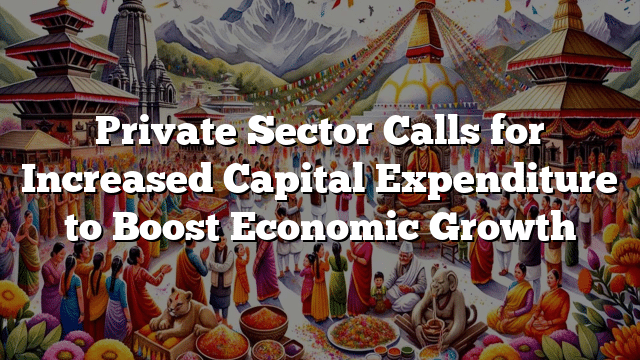
As Nepal gears up for the presentation of the annual budget for the fiscal year 2024-25 on May 28, the country’s private sector has been counting on the government to target a larger capital expenditure outlay to support higher economic growth amid the ongoing economic slowdown. In a pre-budget discussion organized by the Society of Economic Journalists-Nepal (SEJON) in Kathmandu on Thursday, businesses and industry leaders presented their wish list, emphasizing the need for investment-friendly policies and a conducive business environment.
Chandra Prasad Dhakal, president of the Federation of Nepalese Chambers of Commerce and Industry (FNCCI), stressed the importance of the government’s capital injection into the economy to encourage private sector investment. “As the confidence of the private sector has declined, we suggest that the government bring an ‘investment decade’ program,” he said, proposing special treatment for businesses that create substantial employment opportunities.
Dhakal also highlighted the need for prioritizing startups, export-oriented businesses, and the tourism industry. He proposed a reinvestment program allowing companies to reinvest a significant portion of their profits and called for addressing the worrisome situation of the banking and financial institutions.
Kamlesh Agrawal, president of the Nepal Chamber of Commerce, echoed concerns over the economic slowdown, particularly in the retail, wholesale, construction, and manufacturing sectors. He criticized the imposition of taxes on essential commodities, arguing that it promotes smuggling rather than increasing revenue.
Rajesh Agrawal, president of the Confederation of Nepalese Industries, pointed out the government’s failure to make payments for the construction sector, leading to an increasing number of defaulters being blacklisted. He refuted claims that the private sector invested loans in land and shares, stating that most investments have gone into the hydropower and hospitality industries.
Sunil KC, president of the Nepal Bankers Association, acknowledged the banking sector’s historically difficult situation, with low confidence in the private sector to borrow despite ample lending capacity. He advocated for the implementation of digital lending, linking government bodies online, and opening investment in transmission lines to the private sector.
To boost foreign direct investment, KC suggested addressing issues related to hedging, waiving the additional 10 percent tax on foreign investors, and introducing special tax rebates to promote a green economy.
Achyut Wagle, an economic and political analyst, emphasized the need for identifying sectors with high productivity potential and exploring new revenue sources. He warned that the ballooning public debt and lack of economic restructuring could create significant problems in the coming years, stressing the importance of commercial-scale production in the agricultural sector.
Finance Minister Barsha Man Pun assured the private sector that the upcoming budget would prioritize increasing their confidence through policy reforms. “The budget will address the ongoing economic slowdown,” Pun said, adding that the government was focused on its spending capacity and aimed to create an investment-friendly environment to attract private and foreign investment.
As Nepal strives to achieve higher economic growth, the private sector’s call for increased capital expenditure and investment-friendly policies resonates strongly. By fostering a conducive business environment, promoting entrepreneurship, and facilitating public-private partnerships, the government can unlock the country’s economic potential, drive sustainable development, and pave the way for inclusive growth and employment generation.
Related:



